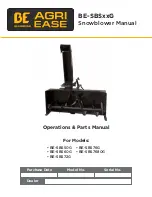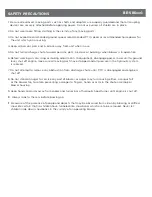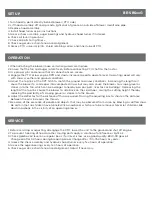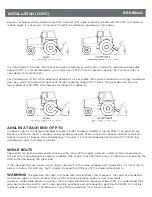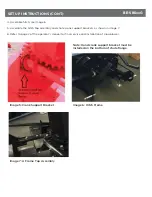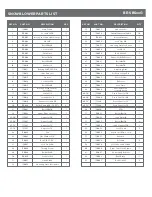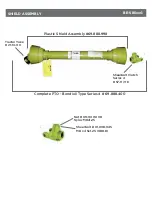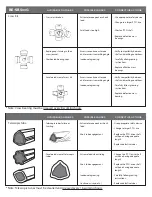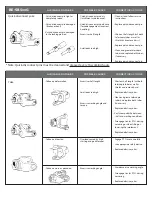
Quick-disconnect yoke
Yoke
- Quick-disconnect pin tight or
completely seized.
- Quick-disconnect pin damaged
(broken or bent).
-Quick-disconnect pin damaged
in the locking portion.
- Quick-disconnect pin dirty
(insufficient maintenance).
- Quick-disconnect pin defective
(forced engagement, incorrect
handling).
- Excessive shaft length.
- Axial loads too high.
- Clean, oil and follow service
instructions.
- Replace quick-disconnect pin.
- Shorten shaft length (cut both
telescopic tubes as well as
shields and remove burrs).
- Replace quick-disconnect pin.
- Clean and grease telescopic
tubes and replace both tubes,
if necessary.
- Replace quick-disconnect pin.
- Yoke ears deformation.
- Yoke ears distorted.
- Yoke ears worn or pounded.
- Excessive shaft length.
- Axial loads too high.
- Excessive working angle and
torque.
- Overload caused by high
starting and peak torques.
- Excessive working angle.
- Shorten shaft length (cut both
telescopic tubes as well as
shields and remove burrs).
- Replace defective yokes.
- Clean and grease telescopic
tubes and replace both tubes
if necessary.
- Replace defective yokes.
- Verify compatibility between
shaft and working conditions
- Disengage tractor P.T.O. during
cornering or when lifting or
lowering the implement.
- Replace defective yokes.
- Engage P.T.O. more carefully.
- Use appropriate safety device.
- Replace defective yokes.
- Avoid excessive working angle.
- Disengage tractor P.T.O. during
cornering.
- Replace defective yokes.
*Note: Quick-disconnect pins must be cleaned and greased every 16 working hours.
AVOIDABLE DAMAGES
POSSIBLE CAUSES
CORRECTIVE ACTIONS
AVOIDABLE DAMAGES
POSSIBLE CAUSES
CORRECTIVE ACTIONS
BE-SBSxxG
Summary of Contents for BE-SBS G Series
Page 9: ...SNOWBLOWER DIAGRAM BE SBSxxG...
Page 15: ......

